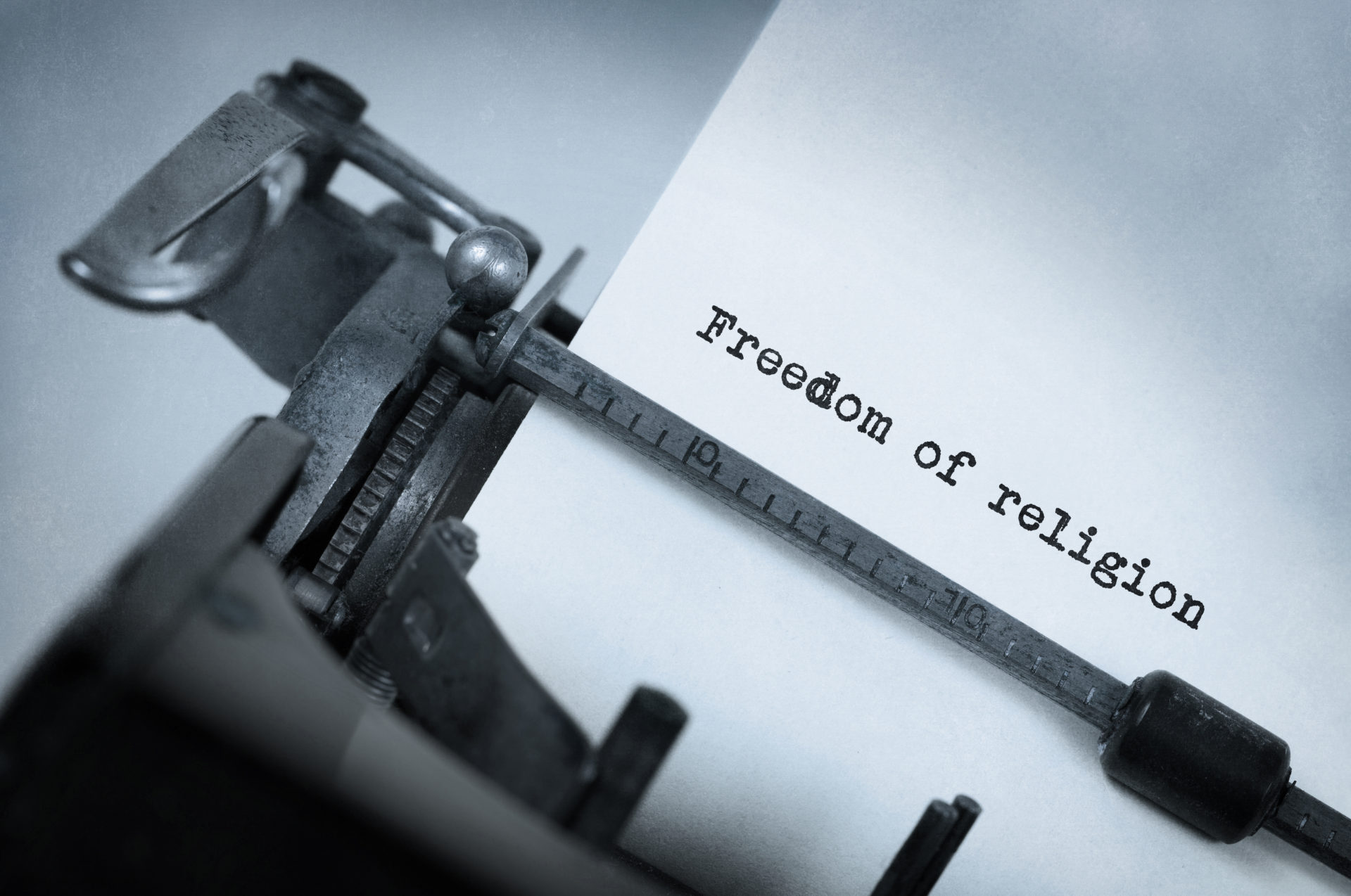Interfaith leaders are troubled by a change in a chaplain program at the state Capitol that effectively excludes non-Christians from leading legislators in prayer.
“You know what that means? No one is welcome here of a different faith,” Muslim faith leader Imad Enchassi said at the Interfaith Jummah Prayer Service on Friday at the Capitol.
Enchassi, senior imam of the Islamic Society of Greater Oklahoma City, voiced his concerns about the new guidelines to the House Chaplain of the Day/Chaplain of the Week Program.
Friday’s event drew about 250 people to hear faith messages from Christian, Jewish and Muslim leaders. Enchassi also led an Islamic prayer, as Muslim men and women knelt on prayer rugs placed on second-floor rotunda.
The chaplaincy guidelines were a central focus of Enchassi’s message to the crowd.
He said the office of Rep. Chuck Strohm, who oversees the chaplain program, sent the new guidelines to representatives in January. The rules now require that clergy taking part in the program “be from the representative’s own place of worship.”
Enchassi said he had applied for the program in January 2017, after Rep. Jason Dunnington, D-Oklahoma City, nominated him. He said an assistant from Dunnington’s office notified him in May 2017 that his application had been denied. No reason was given for the denial.
Enchassi and several leaders from the Christian and Jewish faith communities said the new requirement seems to eliminate non-Christian spiritual leaders from participating in the program because the House — indeed the entire Legislature — is predominantly made up of people who ascribe to the Christian faith tradition.
Carl Rubenstein, a member of the Jewish faith community and immediate past president of the Interfaith Alliance of Oklahoma, described the new guidelines as “a travesty.”
“It’s an insult to the individual faiths and an insult to the entire interfaith community,” he said. “Our legislature is a legislature for all the people. That chaplaincy should be shared by all faiths.”
The Rev. Shannon Fleck said she was surprised by the new requirement.
“I was overwhelmingly disappointed. They are limiting their opportunities to hear from these beautiful, diverse voices in the state,” she said.
Fleck serves as community engagement coordinator for the Oklahoma Conference of Churches, which represents 16 Christian denominations in the state.
“They (legislators) represent people of all faith traditions and people of no faith traditions. It’s important that if prayer is going to be at the Capitol, and prayer is a faith practice, then it not be restricted to one faith.”
Strohm, R-Jenks, and Dunnington could not be reached for comment Friday.
Rep. George Young, D-Oklahoma City, partnered with Rep. Collin Walke, D-Oklahoma City, on Friday to give Enchassi a commendation for his leadership. Young said he was surprised to learn about the new chaplain guidelines because Strohm’s office had not notified him about them.
“As a sitting House member, I have no idea why they came up with that rule,” he said.
Enchassi, Fleck and Young said the guidelines were a reaction to the imam’s application.
Friday, the Muslim leader said he was initially puzzled when he learned his application had been rejected, especially because he has previously given prayers at government meetings, including the invocation before an Oklahoma City Council meeting.
“When I was told I was denied, it was extremely hurtful. This is my state. This is my city. This is the place where I choose to raise my children. This is a place I love so it was extremely heartbreaking to me,” he said.
The imam said he initially kept quiet about the denial, but decided to bring the matter up on Friday because he felt that the new guidelines slight his fellow non-Christian spiritual leaders.
Meanwhile, in a letter to his colleagues, Strohm wrote that each of them has “been placed here by God and elected by the people who believe their representatives’ vision of government will have a positive impact on our wonderful state.”
“The Chaplain Program is not a platform for personal agendas, but an opportunity to ask for God’s wisdom and to speak blessing and hope over those who are often overwhelmed by the many voices that are converging upon them,” Strohm wrote.
And in a paragraph noted as “important,” the representative said: “Please understand it is important to know that the chaplain not take this as an opportunity to lecture the Legislature or try to advance a political agenda.”
Enchassi said he hoped the exclusive guidelines inspired young men and women from the Muslim and Jewish faith traditions to run for a seat in the House of Representatives.
Steve Hill, chief of staff for Oklahoma City Mayor Mick Cornett’s office, confirmed that Enchassi has given the invocation before a council meeting.
“We don’t have a policy per se, but we try to representative of our community. We’re pretty open-minded about it, and we want it to reflect the community,” Hill said.

